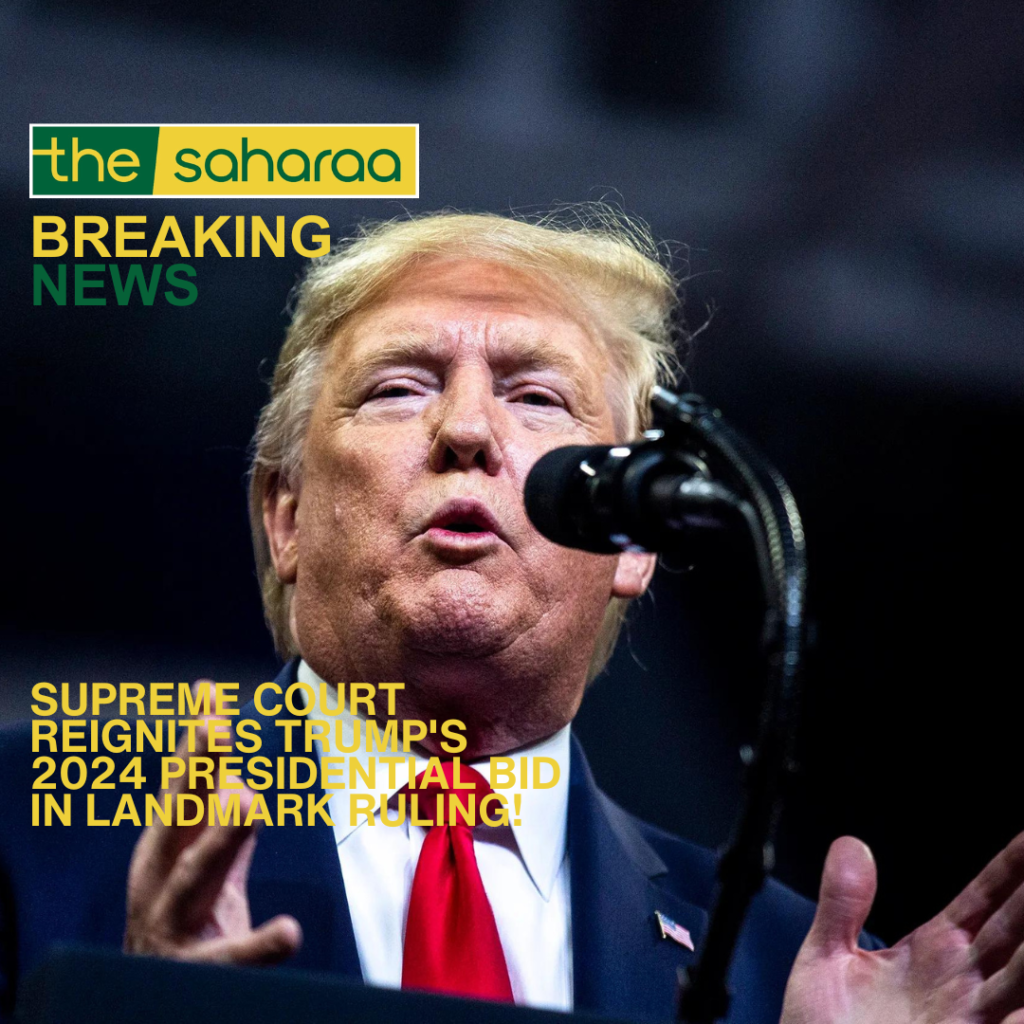Washington, D.C. – In a landmark decision on Monday, the U.S. Supreme Court unanimously restored Donald Trump to the 2024 presidential primary ballots, rejecting state efforts to hold the former Republican president accountable for the Capitol riot. The ruling, issued just a day before the Super Tuesday primaries, determined that states cannot utilize a post-Civil War constitutional provision to exclude presidential candidates from appearing on ballots without prior action from Congress.
Trump swiftly responded to the news, taking to his Truth Social account to declare: “BIG WIN FOR AMERICA!!!”. The ruling effectively halts efforts in Colorado, Illinois, Maine, and elsewhere to remove Trump, the leading contender for his party’s nomination, from the ballot due to his involvement in challenging the results of the 2020 election and the subsequent Capitol attack on January 6, 2021.
This case marked the Supreme Court’s first consideration of a provision of the 14th Amendment adopted after the Civil War, intended to prevent former officeholders who “engaged in insurrection” from holding office again. The decision comes after Colorado’s Supreme Court, in a precedent-setting ruling, applied this provision, known as Section 3, to Trump, citing his role in inciting the Capitol attack.
Critics have warned that requiring congressional action to implement Section 3 could potentially lead to renewed attempts to disqualify Trump if he were to win the election. A scenario was suggested in which a Democratic-controlled Congress might seek to reject certifying Trump’s election on January 6, 2025, under the clause, potentially escalating into a constitutional crisis.
Both sides urged prompt action by the court, which held arguments less than a month ago on February 8. The justices appeared inclined towards ruling in favor of Trump during the arguments. Trump had previously been removed from the ballots in Colorado, Maine, and Illinois, pending the Supreme Court’s decision.
The case represents the court’s most direct involvement in a presidential election since the contentious Bush v. Gore decision, which decided the 2000 election in favor of Republican George W. Bush. It is one of several cases involving Trump directly or indirectly affecting his chances of regaining the presidency, including one slated for late April regarding potential criminal prosecution for his role in election interference and the Capitol attack.
Questions have arisen about the timing of the high court’s intervention and whether Trump will face trial before the November election. The recent arguments marked the first time the court had considered a case involving Section 3, which prohibits individuals from holding certain positions if they violate oaths to support the Constitution.
Conservative and liberal justices scrutinized the case against Trump, particularly concerning whether Congress must act before states can invoke the 14th Amendment and whether the provision applies to the presidency. Trump’s legal team argued against his exclusion from the ballot, contending that the events of January 6 did not constitute an insurrection and that Section 3 does not specifically mention the presidency.
The decision was reached by a court featuring three justices appointed by Trump, who have handled numerous cases involving the former president’s actions. Justice Clarence Thomas, the sole member of the court from the time of the Bush v. Gore case, disregarded calls from Democratic lawmakers to recuse himself due to his wife’s support for Trump’s efforts to overturn the 2020 election results.

